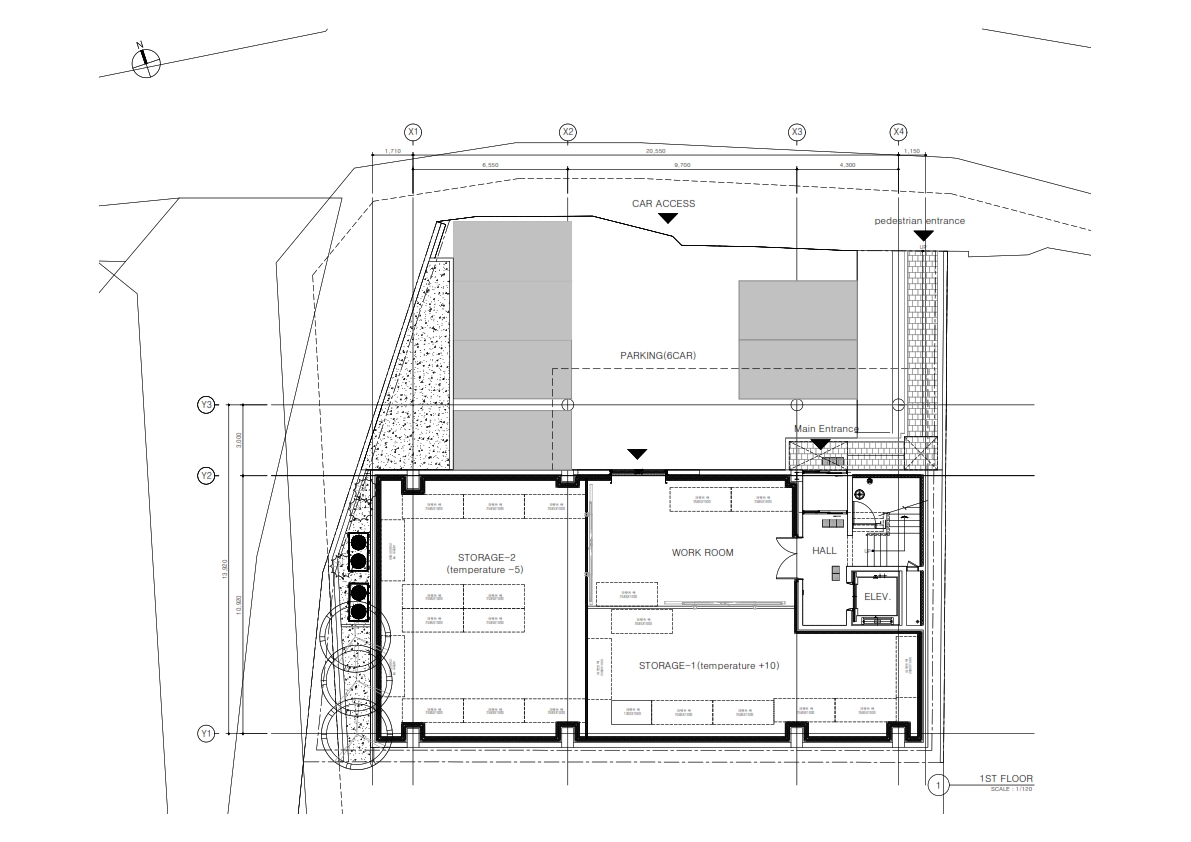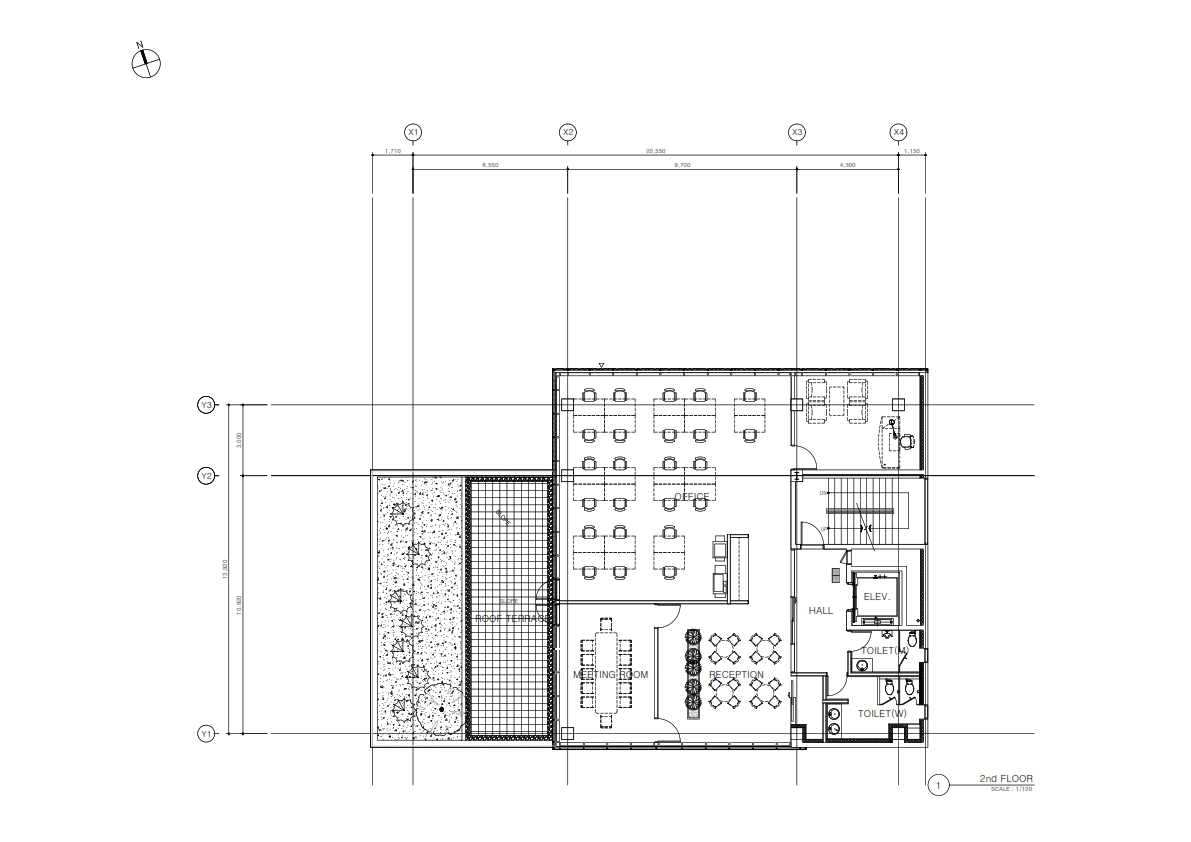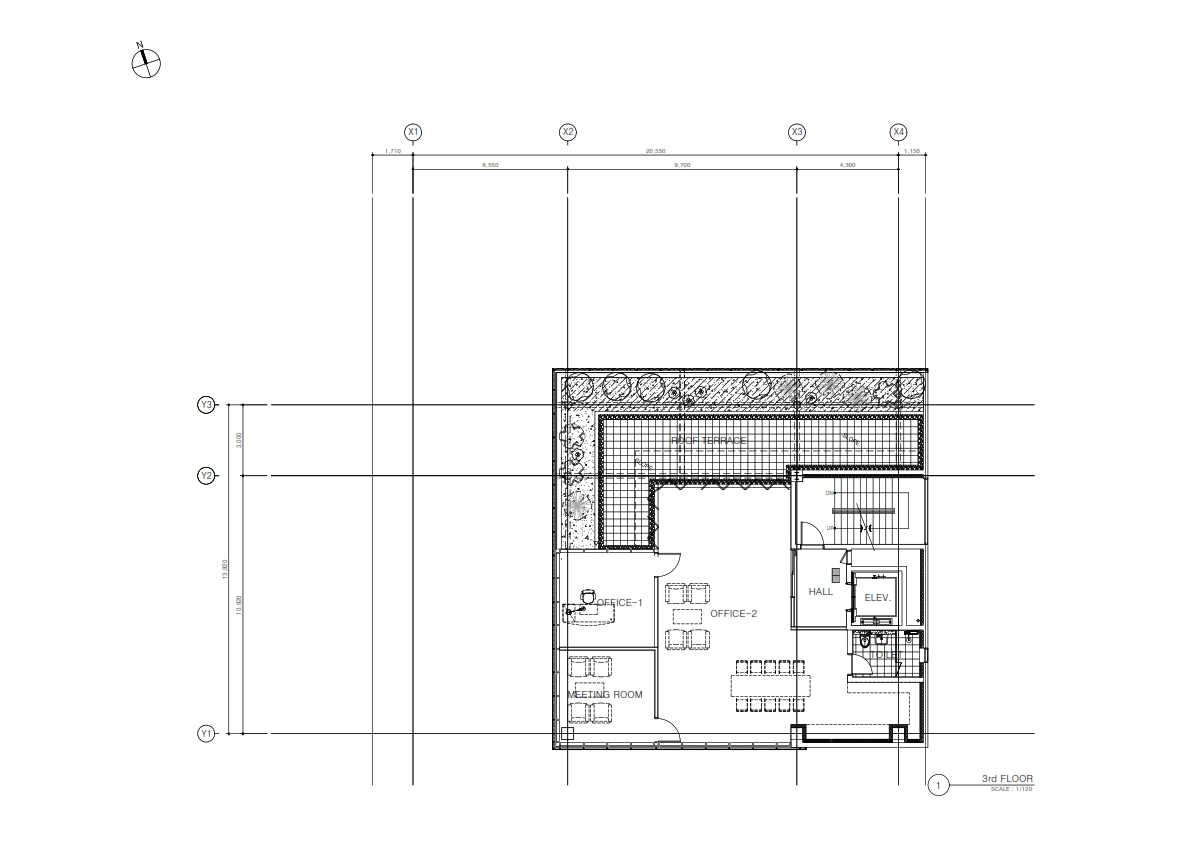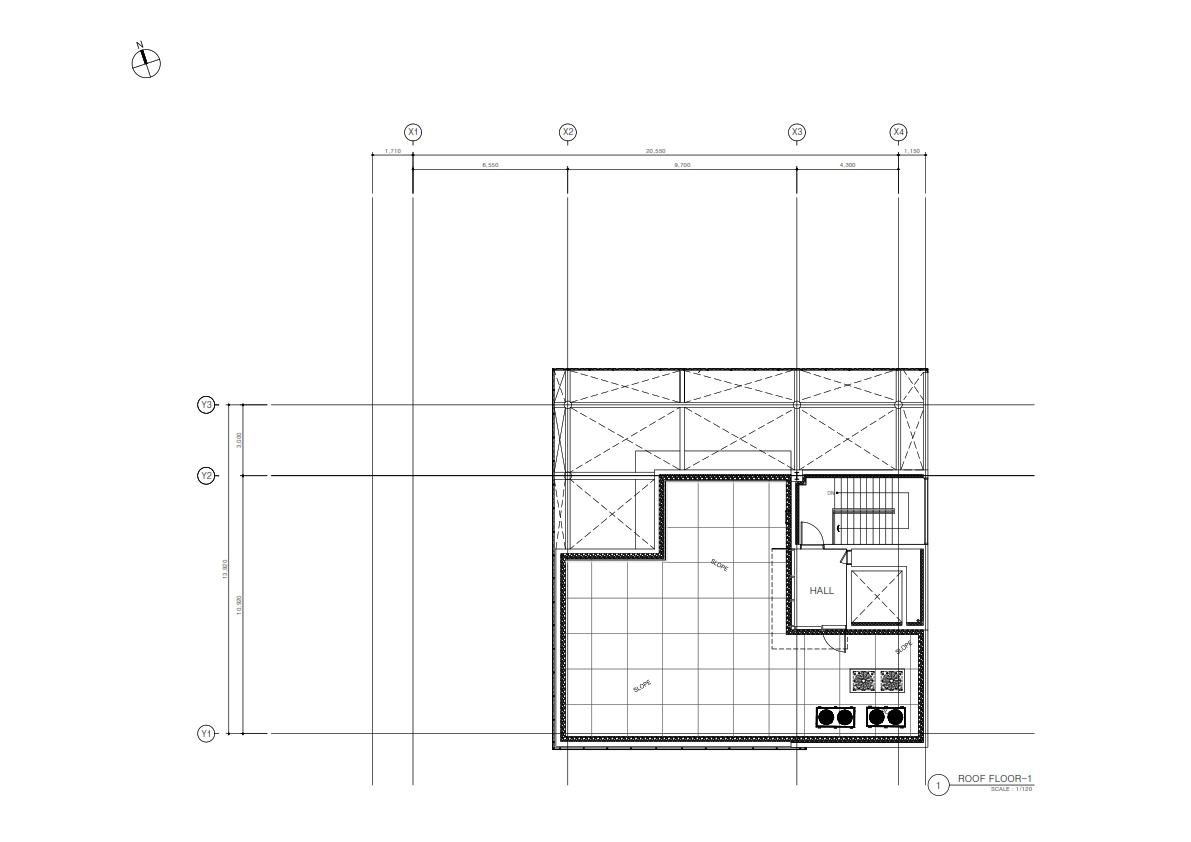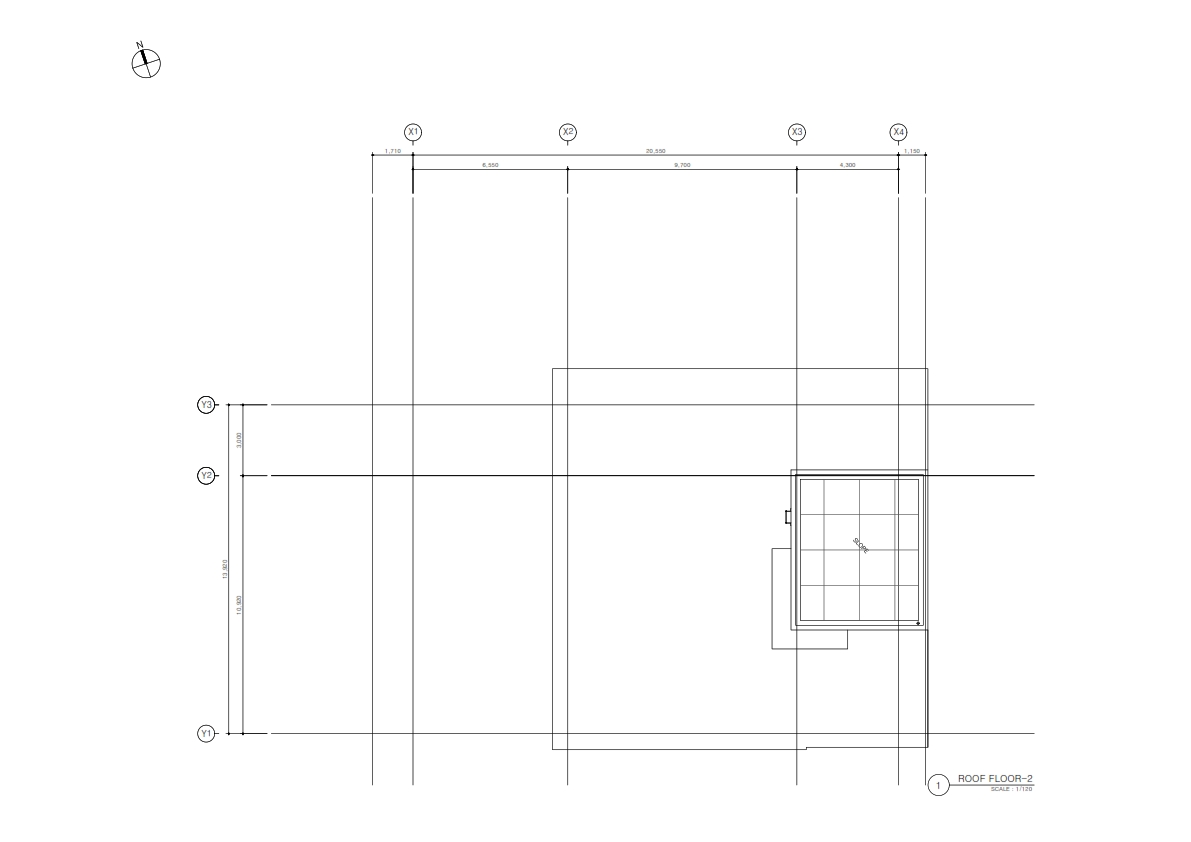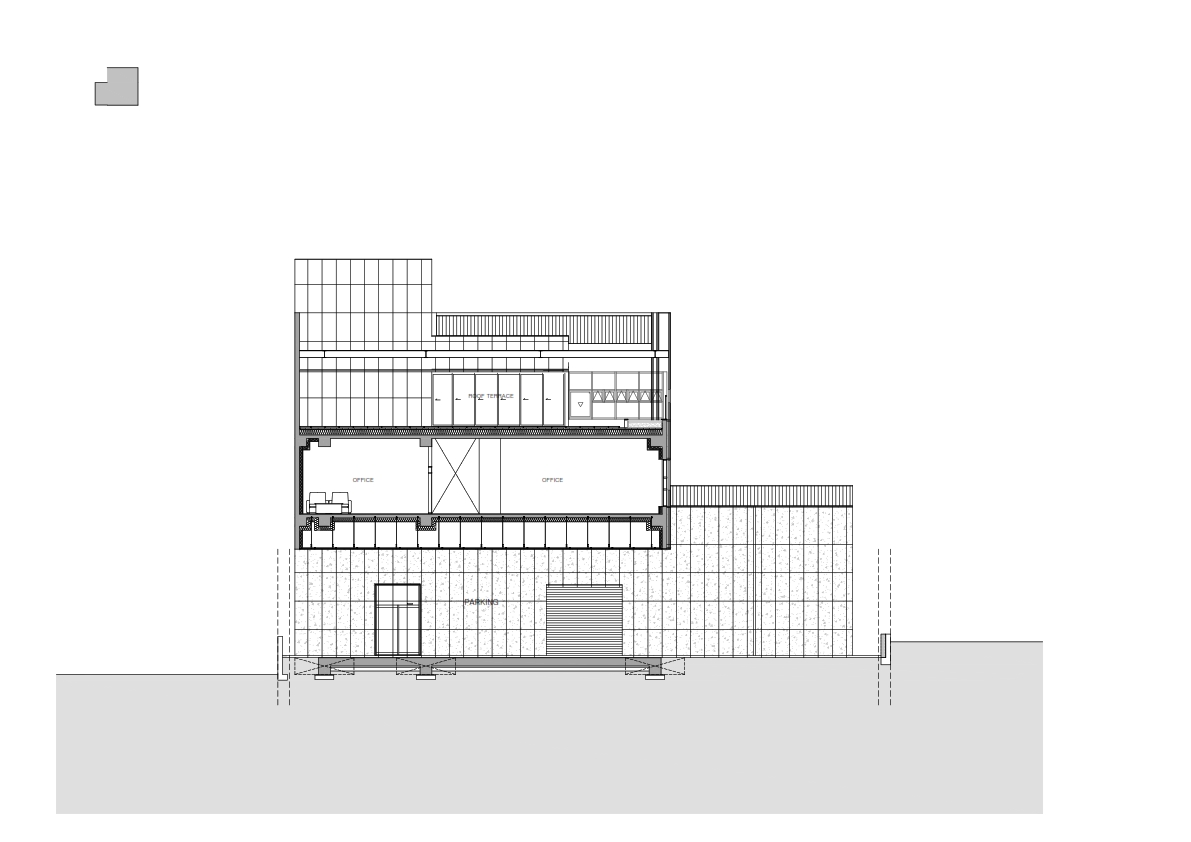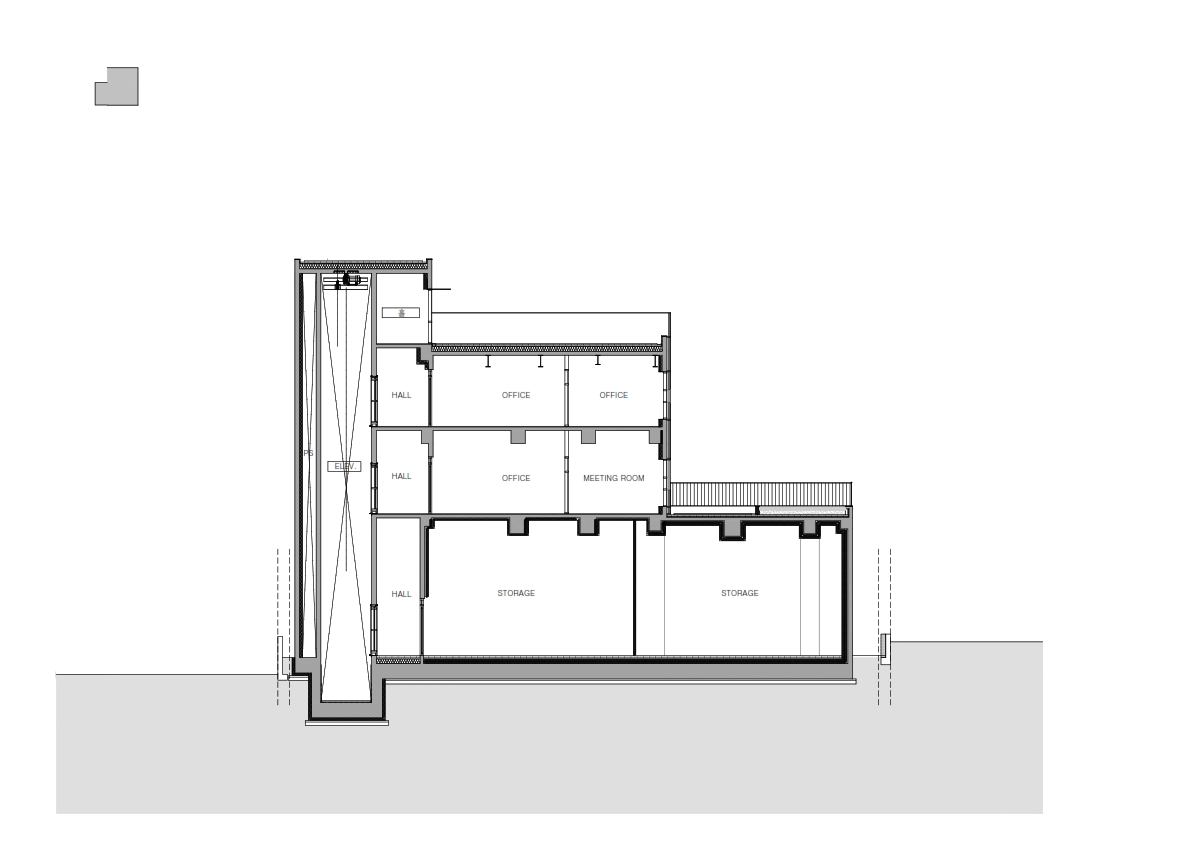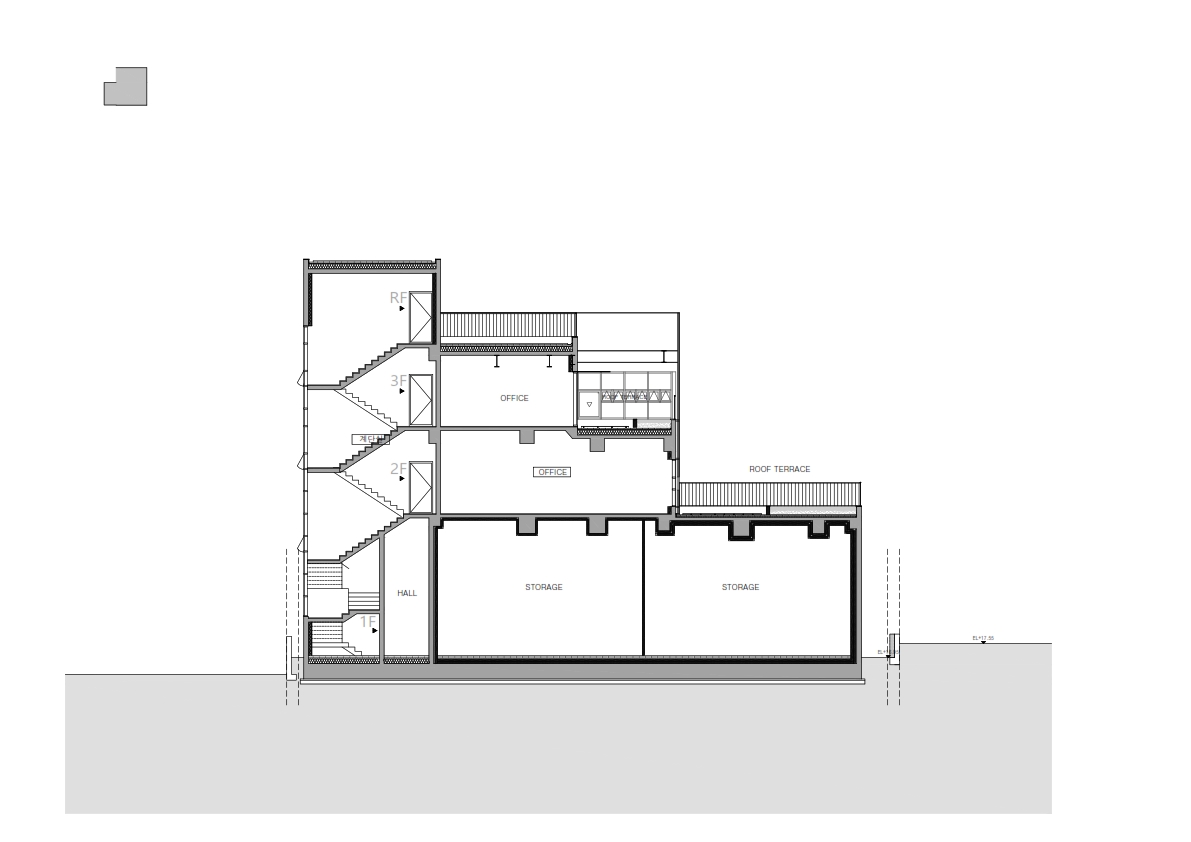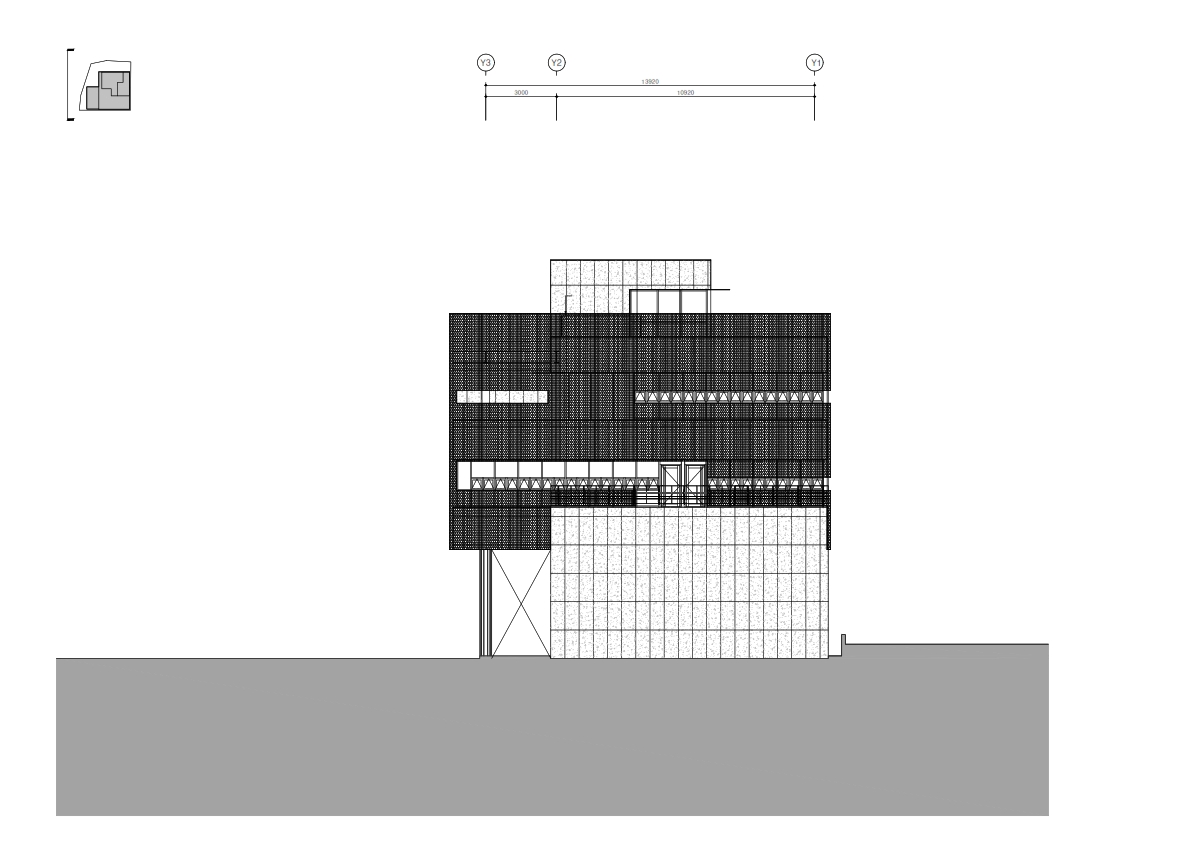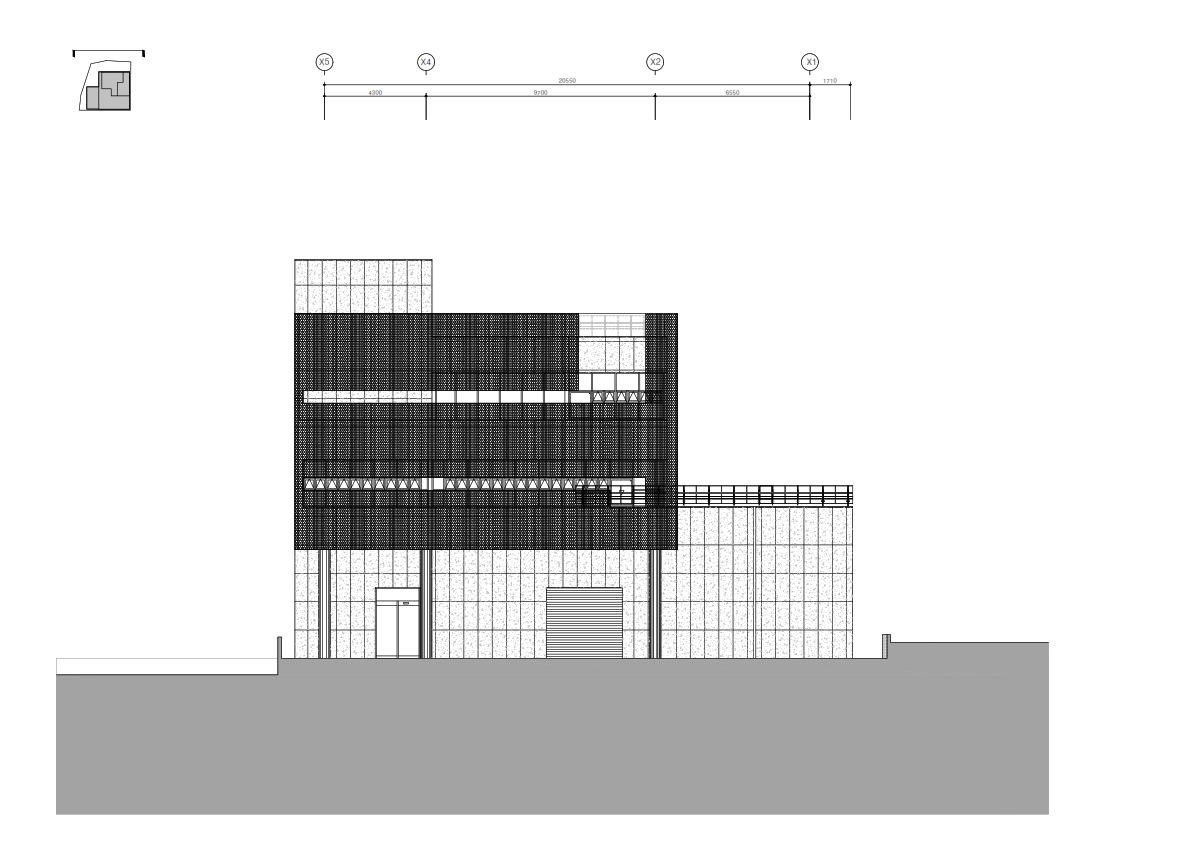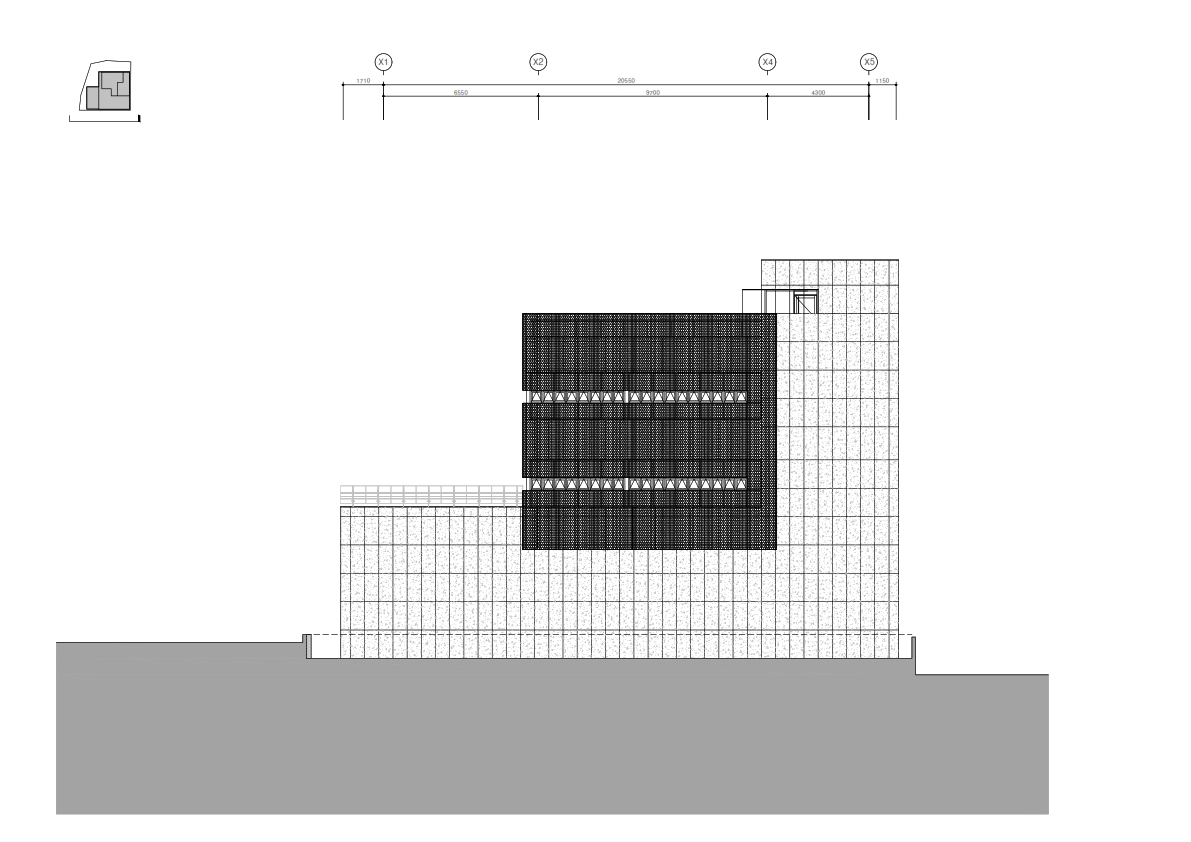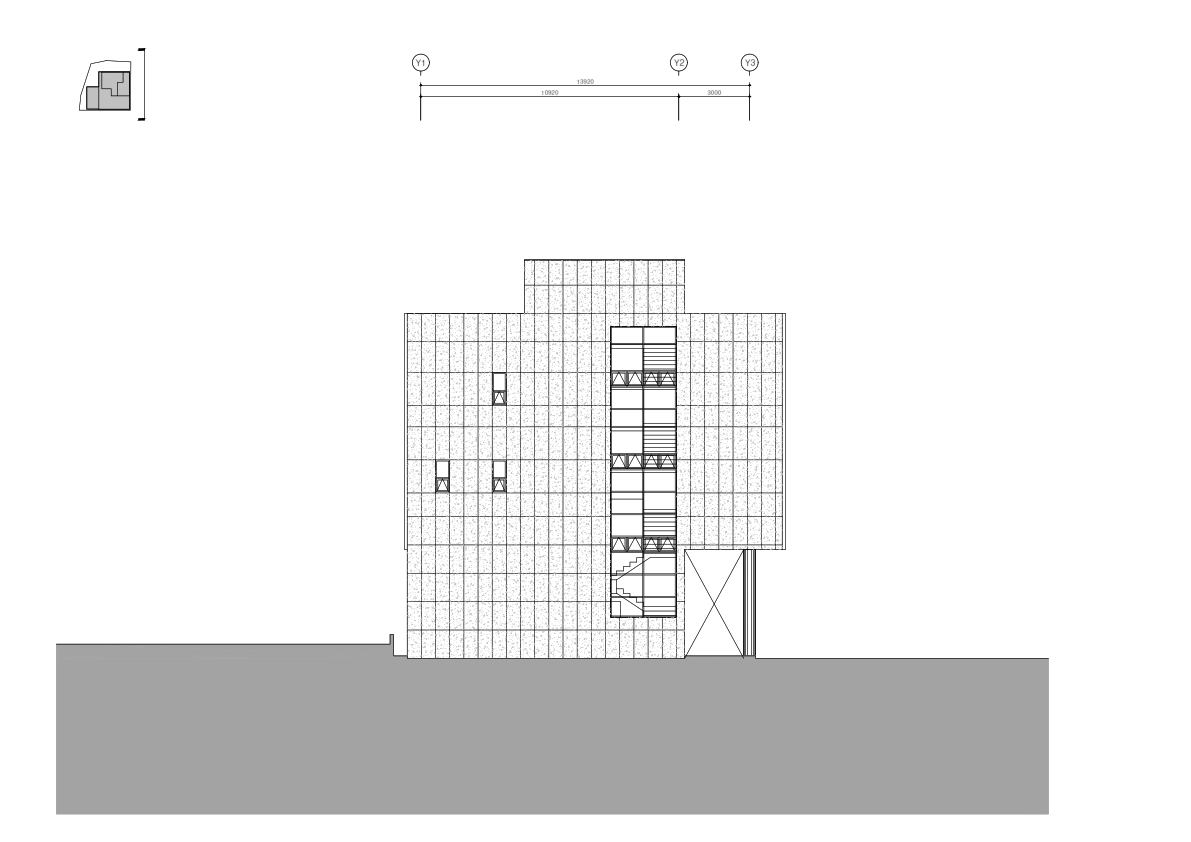The headquarters building in Ipae-dong, between a residential area and a factory, began at the request of a company trading Japanese alcohol. The site is located in Ipae-dong, Namyangju, Gyeonggi-do, and although it is a general residential area, it is surrounded by a cluster of factories and warehouses. The unique point is that the site has very unfavorable conditions for planning as it is located within an urban planning facility and is adjacent to an existing road, and because it is a residential area, it has disadvantages such as limited access to sunlight and the need to resolve roads and levels. In addition, due to noise and flying dust from the surrounding industrial area, it had somewhat uncomfortable conditions for being located as an office building. When I visited the site, I noticed that the existing building had already been demolished and the surrounding area was densely surrounded by factories and warehouse buildings, so I began to worry about how to approach the image of the new office building.
program
The building consists of three floors above ground, with the first floor being a storage space for alcohol and the second and third floors being staff or personal work spaces. A building must have a spatial composition appropriate for its characteristics, but must also establish different relationships with the external environment. The storage space on the first floor where alcohol was stored required a circulation plan that took into account accessibility from the outside and internal moving forklifts. The storage space had to be divided into low-temperature and room-temperature spaces to store alcohol, so for this purpose, a specially designed insulation system wall had to be installed inside. The insulation system refers to the system wall being made as a double box-shaped space within a concrete box. In addition, considering the large number of storage items, a high space with a floor height of 6 meters had to be planned.
We wanted to make the second floor work space as calm as possible, and make it a space where you can work while looking at the outside terrace from the inside. The third floor, which was the client’s personal space, had to be planned as a space that was blocked from the view from the outside but was not stuffy. It was planned to be an open space with an external garden, reflecting the client’s preference for holding events as much as possible. At the same time, folding doors were installed on the exterior windows to create a space where the interior space can be expanded and connected to the exterior.
A new approach to materials
In particular, the exterior skin was inspired by factories and warehouse buildings around the site, considering that the building is both a storage warehouse and an office space. Although it is a new building, we wanted to create a harmonious landscape with the surroundings by borrowing the simplicity of the mass of the factory building and the geometric feel of the steel pattern for the exterior. Therefore, rather than using various exterior materials, we planned a single exterior shell that satisfies all of the characteristics. Exposed concrete and perforated plate.
Considering the building’s basic characteristics as a “storage facility,” it was planned to be entirely made of exposed concrete to express a solid feel. We wanted to express the solid and solid feeling of concrete while creating a sophisticated atmosphere at the same time. Since the office is a work space, it was necessary to create a private atmosphere. The exterior was planned as a double skin, creating a variety of lighting with a sense of depth inside the exterior through the exterior, and creating an exterior where you can feel the changes in light that become warmer over time. In addition, although the perforated exterior is not visible from the outside, it is relatively visible from the inside, thereby ensuring privacy and allowing wind to pass through.
Considering construction costs, we planned an exterior material that would allow the flow of light to be felt by drilling, bending, and connecting galvanized plates instead of aluminum. The circular holes in the outer shell were evenly planned in the vertical direction to ensure an appropriate aperture ratio. The perforated shell was designed to open and close evenly, giving maximum attention to improving the efficiency of the workspace function.
By folding the perforated plates, it has its own structural rigidity and minimizes the amount of fixed auxiliary materials supporting the perforated plates. Additionally, these folded surfaces create an elevation that elicits various responses through points, lines, and planes depending on the viewing angle. And these changes overlapped with the massive mass to create a varied sense of depth at every moment.














